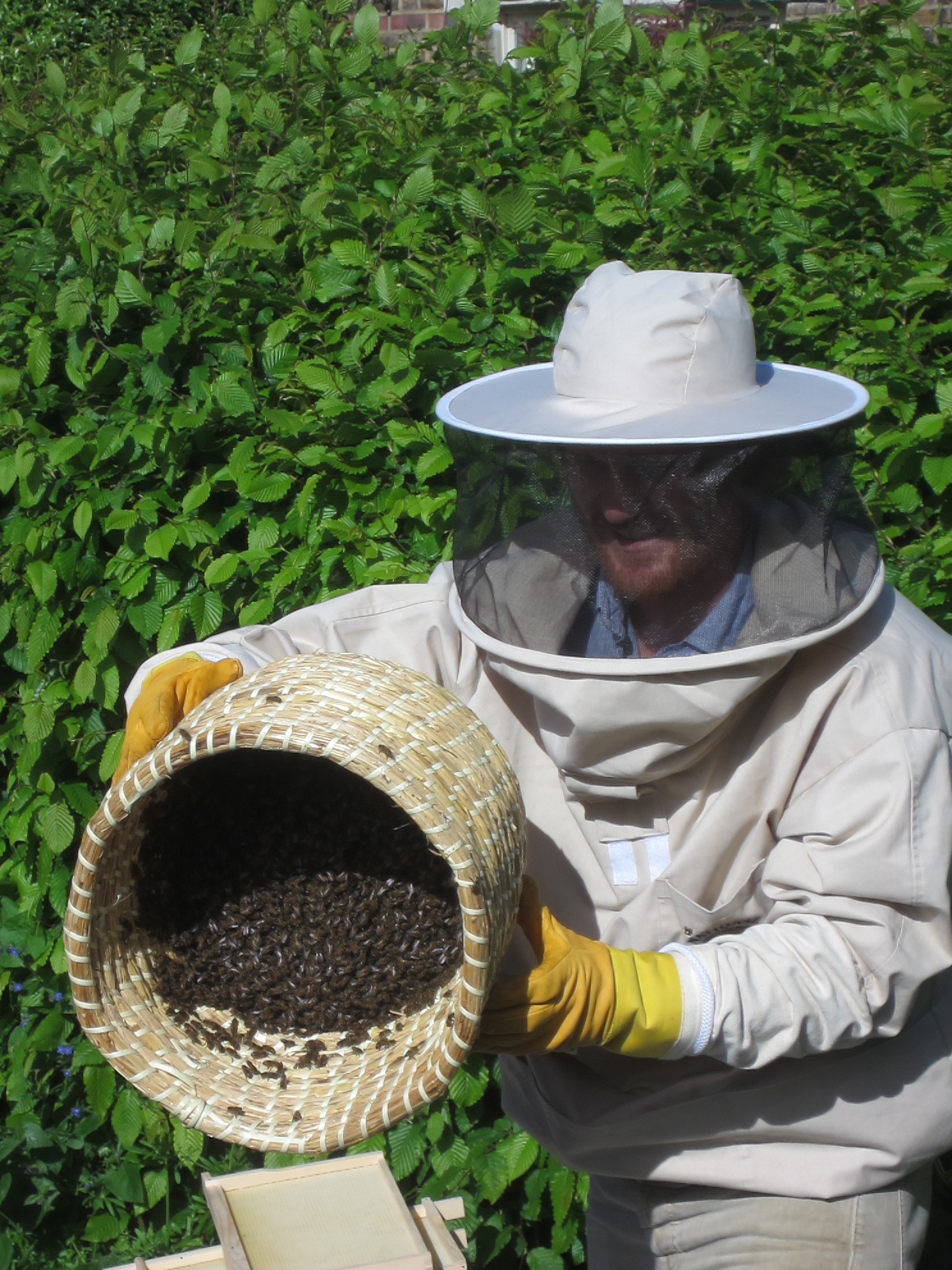Beekeeping in Westerly Ware
We were proud to have introduced bees to the Ware in 2013. The hives are now kept by local beekeeper Simon Blackwell (look out for him in all his kit on summer evenings) and have become a much-loved fixture in the park.
Why keep bees in the city?
Bees seem to do well in an urban environment, where there is a rich diversity of plants, flowers and trees. While global bee populations are declining, perhaps due to pesticides used on agricultural crops, urban bees seem to be thriving on their more varied diet. The richness of their diet also produces gorgeous honey, while local gardeners benefit from the bees’ pollinating activity. We think that Kew, with its many green spaces, gardens and trees, provides a fine home for our colony.
Are there any risks?
Bees are only interested in nectar from flowers, unlike wasps, which are carnivorous, so will not react to having park users nearby or interfere with picnics and ice creams. Their instinct is to exit the hive and fly up and away in search of nectar and we have positioned the hive behind a tree to encourage a swift ascent. The hives are enclosed for protection and we ask park users to ensure that inquisitive children and dogs stay out of the enclosure.
In general, bees will only sting to defend their home and, if left alone, will tolerate people quite close to their hive without any difficulty. All honeybees try to swarm, roughly once a year. This is when the queen takes part of the colony to find a new home, leaving a new queen in the old hive. Although the swarm looks alarming, the swarming bees are focused on following their queen and finding a new home and are not dangerous. The swarm rarely happens without warning, and an experienced beekeeper can manage the process by enticing the bees into a second hive. Should the bees choose a less convenient location, they can often be collected and moved to the new hive. Bees can also become angry when disturbed in their home by the beekeeper. For this reason, Simon displays a clear warning sign when he is working with the bees and we recommend that park users keep their distance at these times and resist the temptation to have a closer look.




